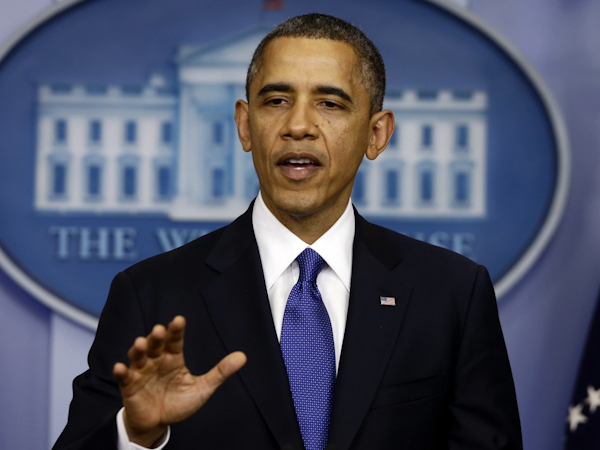Photo Online
President Obama signed a temporary spending bill Tuesday, March 26 in effort to ward off a mass government disaster.
More than four years have passed, yet an official budget has failed to pass on the federal level. However, the recently-signed 2013 Consolidated and Further Continuing Appropriations Act has been set in motion for the last six months of the fiscal year.
The bill passed in the House on March 21 in a 318-109 vote, granting government agency funding at $984 billion until Sept. 30, 2013.
Spending cuts from the sequestration ($85 billion) are included in the Act.
USA Today quoted White House Press Secretary Jay Carney on the subject, who said the president’s signing of the Act is not a representation of his endorsement of the sequester cuts.
“[The 2013 Consolidated and Further Continuing Appropriations Act] extends funding levels for the government through the fiscal year at the levels already agreed to by both parties,” Carney said.
The Hill also interviewed Carney, who told them the president stands behind his recent financial decisions.
“There is no question that we believe we should not have come to this point where sequester would be imposed,” Carney said. “There’s no question that we believe regular folks out there are being unnecessarily harmed by imposition of the sequester, which was designed by Democrats and Republicans purposefully never to become law, to be filled with nonsensical approaches to deficit reduction.”
Additionally, Carney said in The Hill article that the parties have been divided as far as a proposed budget plan. Carney said Republicans are pushing for entitlement reforms and budget cuts, while Democrats wish to impose new taxes on wealthy American citizens and corporations with smaller government cuts than Republicans have argued.
Assistant Professor of Business at Oklahoma Christian University Jody Jones said passing a temporary spending bill is not enough to get the country through these times.
“We’ve run up debt for the last hundred years, and I think everyone agrees that we need to get out of it,” Jones said. “But this is a Band-Aid patch for the problem; it’s not going to do a whole lot in the grand scope of things. It’s like your bank account being overdrawn by a thousand dollars and you put in a roll of nickels.”
Jones said in order for the federal government to make a substantial improvement to the economic situation, Democrats and Republicans will have to do more than compromise.
“There’s got to be some cooperation, what’s going on in Washington is embarrassing,” Jones said. “…Eventually someone is going to have to sit down and make hard decisions. Compromise only implies that we both give up a little to gain a little, but here someone is going to have to give up a lot. Someone is going to have to say, ‘It’s OK to raise taxes and cut spending,’ because there’s no way to do it just one side or the other.”
Jones said this isn’t a problem wealthy Americans will be able to solve by being taxed further, and this isn’t a problem cutting social programs can fix.
“Passing a budget will be a start [to solving the financial crisis], but they will have to raise taxes,” Jones said. “I know that’s very unpopular to say, but there’s no way to balance the budget without raising taxes… We can’t cut our way all the way through the problem.”
Jones said he makes an effort to discuss fiscal policy in his classes to keep students informed.
Senior accounting major Kyle Knierim said budget cuts are inevitable.
“The budget cuts definitely need to happen,” Knierim said. “We have to stop spending more than we take in… I feel like we’re on life support. This whole thing is just temporarily stopping the problem rather than solving it.”















Be First to Comment